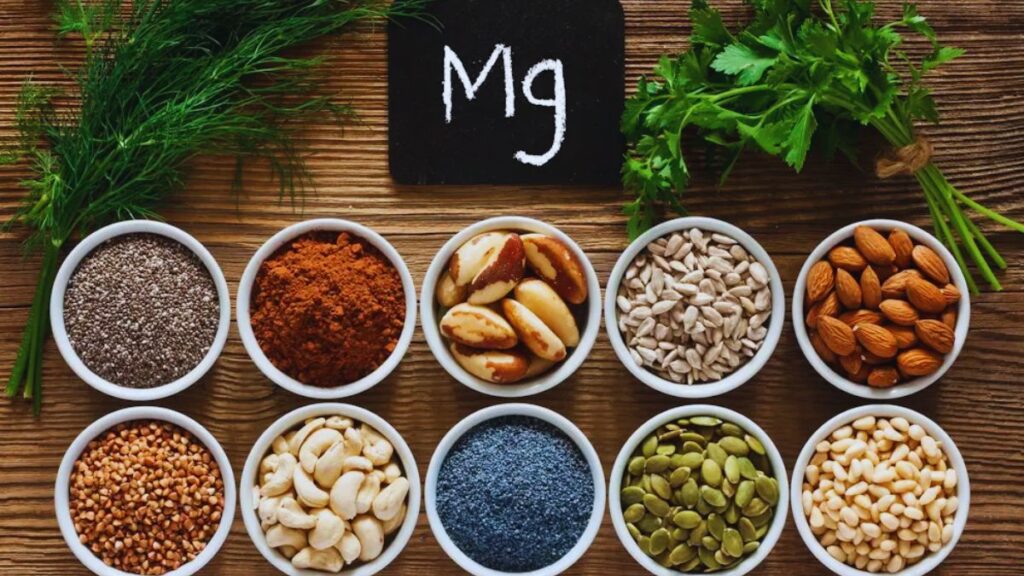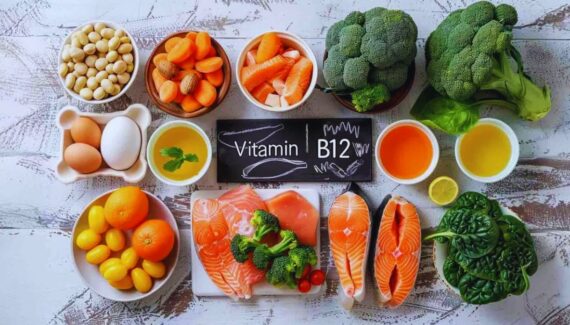Almonds are widely regarded as one of the healthiest nuts you can add to your diet.
They are packed with nutrients that support heart health and overall wellness. Rich in magnesium, vitamin E, and healthy unsaturated fats, almonds help lower bad cholesterol and reduce the risk of cardiovascular diseases such as heart attacks and strokes.
However, while almonds are a great source of magnesium, several common foods actually contain even higher amounts of this essential mineral — and can easily be incorporated into your daily meals.
Why Magnesium Is So Important
Magnesium is one of the most crucial minerals for maintaining good health. It plays a role in more than 300 biochemical reactions in the body, influencing everything from energy production to muscle function. A single serving of almonds provides around 76.5 milligrams of magnesium, which accounts for roughly 18% of your daily requirement. This mineral helps regulate blood sugar and blood pressure levels, supports brain and bone health, and contributes to muscle strength and relaxation.
Let’s explore some everyday foods that are richer in magnesium than almonds — and how they can boost your overall well-being.
1. Legumes
Legumes such as beans, lentils, chickpeas, peas, and soybeans are excellent plant-based sources of magnesium. In fact, they contain nearly double the amount found in almonds.
- Soybeans: Around 148 mg of magnesium per cooked cup
- Lima and black beans: Between 120–126 mg
- Chickpeas: Approximately 47 mg
Apart from magnesium, legumes are also packed with fibre, protein, and antioxidants — making them ideal for improving digestion, supporting heart health, and keeping you full longer.

2. Green Leafy Vegetables
Leafy greens are a powerhouse of nutrients, including magnesium. Among them, spinach and beet greens are especially rich sources.
- Spinach: About 157 mg per cooked cup
- Beet greens: Around 97.9 mg per cup
These vegetables are incredibly versatile and can be added to almost any meal. Whether tossed into smoothies, mixed in salads, folded into omelettes, or stir-fried with other veggies — they make a healthy addition to your daily diet.
3. Whole Grains
Whole grains are often praised for their fibre and protein content, but they’re also excellent sources of magnesium. Replacing refined grains with whole grains can significantly boost your magnesium intake.
- Amaranth: 160 mg per cooked cup
- Quinoa: 118 mg per cooked cup
- Brown rice: 85.8 mg per cooked cup
- Buckwheat: 85.7 mg per cooked cup
Including these grains in your lunch or dinner not only enhances your magnesium levels but also supports digestive health and helps regulate cholesterol and blood sugar levels.
4. Nuts and Seeds
While almonds are already known for their nutrient density, some nuts and seeds actually contain more magnesium per serving.
- Hemp seeds: 210 mg per 30 grams
- Pumpkin seeds: 168 mg
- Brazil nuts: 107 mg per 28 grams
- Chia seeds: 95 mg
- Cashews: 82.8 mg
Nuts and seeds are also rich in healthy fats, vitamin E, zinc, and selenium — nutrients that support immune function, brain health, and glowing skin. Sprinkle them over yogurt, salads, or oatmeal for a nutrient-packed boost.
5. Seafood
Although most seafood isn’t particularly high in magnesium, certain varieties of fatty fish offer a notable amount.
- Salmon: Around 80 mg
- Canned oysters: 150 mg per large can
- Canned tuna: 99.5 mg per can
Fatty fish are also rich in omega-3 fatty acids and protein, which contribute to better heart health, brain function, and reduced inflammation.

The Health Benefits of Magnesium
Magnesium does far more than just support your muscles — it’s essential for various physical and mental functions. Here are some of its most notable health benefits:
1. Enhances Exercise Performance
During workouts, your body uses more magnesium to transport blood sugar into your muscles and eliminate lactic acid — the compound responsible for post-workout fatigue. Adequate magnesium levels help improve stamina, muscle recovery, and overall performance.
2. Supports Mental Health and Reduces Depression
Magnesium is vital for brain health and mood regulation. Studies have found that low magnesium levels are linked to a higher risk of depression and anxiety. Chronic stress can also deplete magnesium stores, creating a cycle that impacts mental well-being. Consuming magnesium-rich foods helps maintain balance and promote relaxation.
3. Regulates Blood Sugar and Prevents Type 2 Diabetes
Over half of people with type 2 diabetes have low magnesium levels, which affects insulin sensitivity and blood sugar control. A magnesium-rich diet helps improve glucose metabolism and may lower the risk of developing diabetes altogether.
Magnesium is a vital nutrient that supports nearly every system in your body — from your heart and muscles to your brain and metabolism. Making these magnesium-rich foods part of your diet can improve energy levels, reduce stress, and promote long-term wellness. So, mix and match these options for a healthier, more balanced lifestyle.
FAQs on 5 Foods Rich in Magnesium
1) What are the best foods that are rich in magnesium?
Foods like spinach, quinoa, pumpkin seeds, soybeans, and amaranth are known to be rich and potent sources of magnesium.
2) How much magnesium does the body need on a daily basis?
The recommended daily magnesium intake for adults is around 300–430 mg, depending on age and gender.
3) What are the health benefits of taking magnesium?
Magnesium enhances exercise performance, regulates blood sugar, maintains heart rhythm, supports brain function, and helps combat stress and depression of the human body. It has a vast range of benefits.



